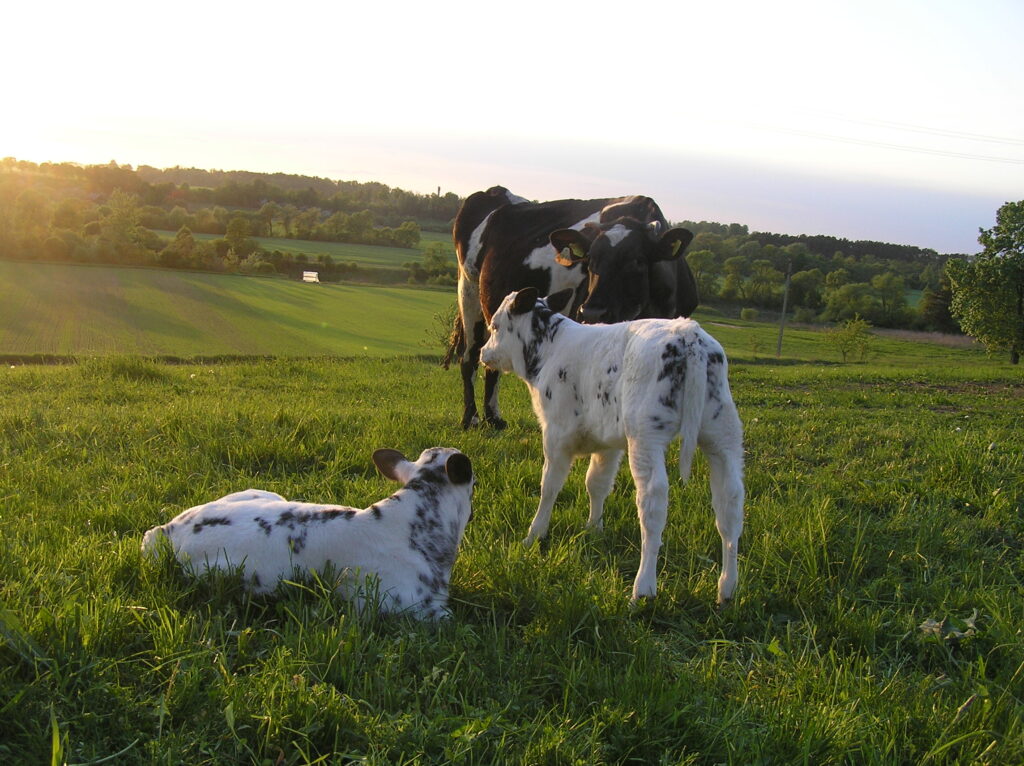In the Kėdainiai district, where Vilma and Valdas live and operate their organic beef farm, natural grasslands were historically destroyed by intensive agriculture. The couple therefore acknowledges the responsibility that comes with farming in this area. One of their main driving forces has been to re-establish and preserve valuable habitats and biodiversity.
“We are happy to see biodiversity returning to this area,” says Vilma. “I believe that the efforts of every single farm are important, both to reduce the threat of eutrophication and to preserve biodiversity, especially in regions of very intensive agriculture.”
The Živatkauskai family has worked hard to clean up meadows in the Valley of Nevėžis River from bushes and vegetation, and now the resulting grasslands are maintained through the grazing of their cattle. Pastures divided into zones with different grazing intensity, low livestock density and permanent buffer zones along the river all work to optimize nutrient retention in the soils.
The efforts of every single farm are important, both to reduce the threat of eutrophication and to preserve biodiversity, especially in regions of very intensive agriculture.
In addition to implementing many agri-environmental measures, Vilma and Valdas are passionate about education as a tool to increase the level of sustainable farming in Lithuania, and their farm organizes educational events every year.
“Educating younger generations is very important for future trends, and we are really proud that the school we are cooperating with has environmental education as one of their priorities,” explains Vilma.
“Also, more and more young people are interested in farming and they look for new, attractive ideas. What could be more attractive than farming in harmony with the environment?” she concludes.

In 2015, Vilma and Valdas Živatkauskai received the national Baltic Sea Farmer Award in recognition of their efforts to reduce nutrient runoff on their farm.
FARM FACTS
Location: Ginetai village in central Lithuania
Type of farm: Organic cattle and pig farm (45 ha)
Main production: Beef and pork
Key practices: Solid barn foundation, deep straw bedding, manure used as fertilizer, permanent grasslands and buffer zones, wetlands, low livestock density
National jury motivation: "The Lithuanian jury was particularly impressed with Vilma and Valda’s efforts to improve water quality and biodiversity in the area around Nevėžis river, while at the same time respecting traditions. They are “ambassadors” for nature friendly farming, not only because of the way they run their own farm, but also because of their efforts to inspire other farmers to develop their farms in a sustainable way. This year, Vilma actively took part in negotiations between the Ministry of Agriculture and ecological farmers, which resulted in preventing the intensification of organic farming in Lithuania. The farm also organizes educational events and is part of several environmental projects."

